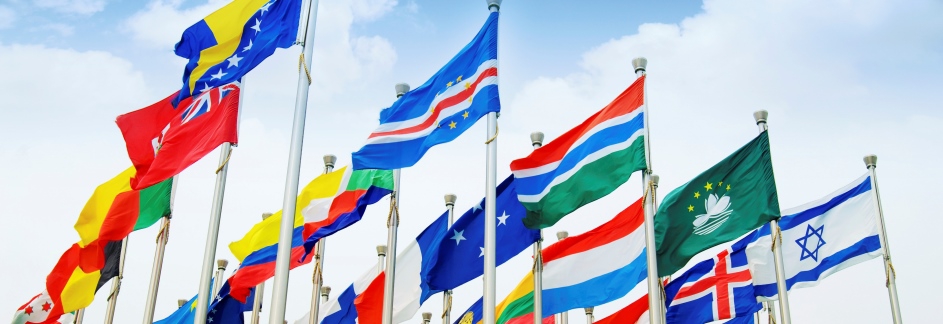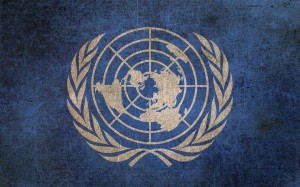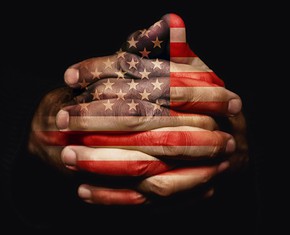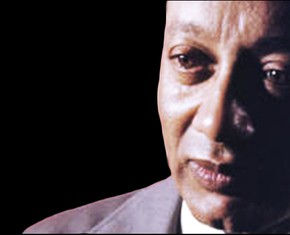The views expressed in our content reflect individual perspectives and do not represent the authoritative views of the Baha'i Faith.
“We will not build a peaceful world by following a negative path. It is not enough to say we must not wage war. It is necessary to love peace and sacrifice for it. We must concentrate not merely on the negative expulsion of war but on the positive affirmation of peace. We must see that peace represents a sweeter music, a cosmic melody, that is far superior to the discords of war. Somehow, we must transform the dynamics of the world power struggle from the negative nuclear arms race, which no one can win, to a positive contest to harness humanity’s creative genius for the purpose of making peace and prosperity a reality for all the nations of the world. In short, we must shift the arms race into a peace race.” – Martin Luther King, Jr.
Baha’u’llah called every human being, regardless of their beliefs, to diligent and devoted work for world peace and unity. He said
“The essence of faith is fewness of words and abundance of deeds.”
But what does that amount to in practical terms? What does it really mean to work for peace?
For Baha’is, working toward a peaceful world encompasses a wide range of active, constructive and positive endeavors. All of the global efforts of the Baha’i community center around achieving Baha’u’llah’s primary goal of the unity of humanity. Individual Baha’is everywhere work to unify humankind, even as each one of their communities’ specific efforts focuses on one or more of the many progressive Baha’i principles for spiritual, social and economic development:
 – the eradication of racism and injustice;
– the eradication of racism and injustice;
– the full realization of the equality of men and women;
– the elimination of the extremes of wealth and poverty;
– an end to religious strife, bigotry and fanaticism;
– the essential agreement of science and religion;
– independent investigation of the truth for everyone;
– the universal education of every child;
– working for global environmental sustainability;
– and bringing all of these principles together as the foundation for a lasting peace.
Baha’is and their friends and supporters on every continent creatively work to realize these lofty goals by starting, participating in and sustaining Baha’i-inspired educational, devotional and development projects designed to uplift humanity and promote peaceful harmony, cooperation and unity. Thousands of democratically-elected Baha’i administrative bodies, called Local and National Spiritual Assemblies, help direct and support that grassroots work. All around the planet today millions of people collaborate together to bring about Baha’u’llah’s promise of a new world where justice, freedom and peace have completely and permanently supplanted oppression, slavery and war. (For some inspiring examples, please click here)
Locally and individually, the Baha’is and their supporters aspire to awaken a new spirit in their communities ,to transmit Baha’u’llah’s message of hope and peace, and to foster the conditions necessary for the advent of a peaceful and unified world.
At the global level, the elected worldwide leadership of the Baha’is, called the Universal House of Justice, consults with the United Nations, heads of state and leaders of thought to encourage and promote the realization of the Baha’i vision of The Parliament of Man – that “mighty convocation” the Baha’i teachings have always advocated. In 1985, the Universal House of Justice issued a statement called The Promise of World Peace, which culminates in an appeal to the leadership of all the world’s nations to begin the process that will lead to true global governance:
The holding of this mighty convocation is long overdue.
With all the ardour of our hearts, we appeal to the leaders of all nations to seize this opportune moment and take irreversible steps to convoke this world meeting. All the forces of history impel the human race towards this act which will mark for all time the dawn of its long-awaited maturity.
Will not the United Nations, with the full support of its membership, rise to the high purposes of such a crowning event?
Let men and women, youth and children everywhere recognize the eternal merit of this imperative action for all peoples and lift up their voices in willing assent. Indeed, let it be this generation that inaugurates this glorious stage in the evolution of social life on the planet.
The source of the optimism we feel is a vision transcending the cessation of war and the creation of agencies of international co-operation. Permanent peace among nations is an essential stage, but not, Baha’u’llah asserts, the ultimate goal of the social development of humanity. Beyond the initial armistice forced upon the world by the fear of nuclear holocaust, beyond the political peace reluctantly entered into by suspicious rival nations, beyond pragmatic arrangements for security and coexistence, beyond even the many experiments in co-operation which these steps will make possible lies the crowning goal: the unification of all the peoples of the world in one universal family. (The Promise of World Peace, p. 4)
The Promise of World Peace has been presented to hundreds of world leaders, and has helped create a growing global awareness of the need for one unified international system:
The horrific experiences of two world wars which gave birth at first to the League of Nations and then to the United Nations; the frequency with which world leaders, particularly in the decade of the nineties, have met and agreed on the resolution of global issues; the call for a global order that issued from the participation of these leaders in the celebration of the fiftieth anniversary of the United Nations; the multiplication of organizations of civil society that focus attention on a variety of international concerns through the operation of an ever-expanding network of activities; the widespread debates on the need for global governance and numerous organized efforts towards world peace; the emergence of international tribunals; the rapid developments in communications technology that have made the planet borderless — these are among the voluminous evidences of a momentum toward peaceful international relations that has clearly become irreversible. (Peace Among the Nations, 1999, Baha’i International Community)
For every peace-loving person, the evidences of this momentum are heartening. But they also raise an important question – what can I do?



 The horrific experiences of two world wars which gave birth at first to the League of Nations and then to the United Nations; the frequency with which world leaders, particularly in the decade of the nineties, have met and agreed on the resolution of global issues; the call for a global order that issued from the participation of these leaders in the celebration of the fiftieth anniversary of the United Nations; the multiplication of organizations of civil society that focus attention on a variety of international concerns through the operation of an ever-expanding network of activities; the widespread debates on the need for global governance and numerous organized efforts towards world peace; the emergence of international tribunals; the rapid developments in communications technology that have made the planet borderless — these are among the voluminous evidences of a momentum toward peaceful international relations that has clearly become irreversible. (Peace Among the Nations, 1999, Baha’i International Community)
The horrific experiences of two world wars which gave birth at first to the League of Nations and then to the United Nations; the frequency with which world leaders, particularly in the decade of the nineties, have met and agreed on the resolution of global issues; the call for a global order that issued from the participation of these leaders in the celebration of the fiftieth anniversary of the United Nations; the multiplication of organizations of civil society that focus attention on a variety of international concerns through the operation of an ever-expanding network of activities; the widespread debates on the need for global governance and numerous organized efforts towards world peace; the emergence of international tribunals; the rapid developments in communications technology that have made the planet borderless — these are among the voluminous evidences of a momentum toward peaceful international relations that has clearly become irreversible. (Peace Among the Nations, 1999, Baha’i International Community)












Comments
Sign in or create an account
Continue with Googleor